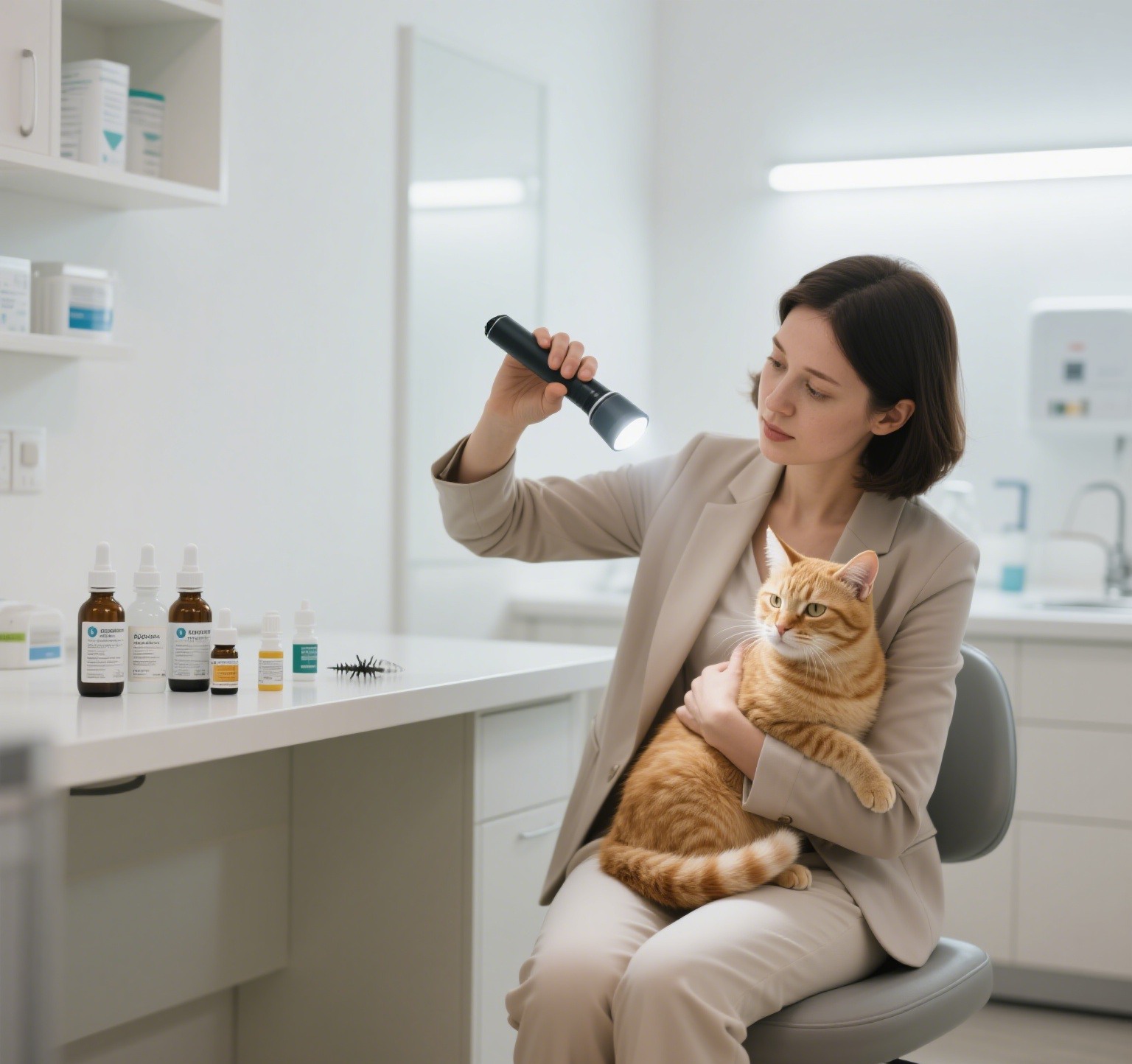How Often Should You Deworm Your Cat? Adjusting by Season
How Often Should You Deworm Your Cat? Adjusting by Season
Protecting your cat from internal parasites (worms) isn’t a “set it and forget it” task. While regular deworming is crucial, the optimal frequency can be significantly influenced by the changing seasons and your cat’s lifestyle. Understanding these seasonal shifts is key to effective, year-round protection.
Why Seasons Matter for Cat Deworming
Parasite lifecycles and prevalence are heavily impacted by environmental factors like temperature and humidity:
Temperature: Warmth accelerates egg development and larval survival for many parasites (like roundworms, hookworms).
Humidity: Moist conditions favor the survival of intermediate hosts (fleas, rodents) and parasite eggs/larvae in the soil.
Host Activity: Seasonal changes affect the activity levels of flea-carrying rodents and insects, increasing exposure risk.
Tailoring Your Cat’s Deworming Schedule Through the Year
Here’s a breakdown of seasonal parasite risks and recommended deworming adjustments:
Spring (Rising Risk):
Risks: Warming temperatures thaw the ground, reactivating dormant parasite eggs (especially roundworm, hookworm). Increased flea activity begins. Outdoor exploration rises.
Action: Initiate or increase frequency, especially for outdoor cats or those with flea exposure. A broad-spectrum dewormer effective against roundworms and hookworms is key. Ensure flea control is rigorous, as fleas transmit tapeworms.
Summer (Peak Risk):
Risks: Peak season for most parasites. Ideal warm, humid conditions maximize egg/larvae survival in soil and grass. Highest flea and mosquito (heartworm vector) activity. Hunting rodents/birds increases tapeworm risk.
Action: Most critical season. Monthly broad-spectrum deworming is often recommended by vets for outdoor cats or those in high-risk areas. Indoor cats on strict prevention may stay on a quarterly schedule, but vigilance is paramount. Consistent flea, tick, and heartworm prevention is non-negotiable.
Fall (Persistent Risk):
Risks: Remaining warmth sustains parasite activity. Rodents seek shelter, potentially bringing fleas/parasites closer to homes. Accumulated environmental contamination from summer.
Action: Maintain vigilance. Continue deworming frequency based on summer risk assessment. Thoroughly clean outdoor areas frequented by your cat. Focus remains on broad-spectrum coverage and flea control.
Winter (Reduced, But Not Zero Risk):
Risks: Significantly lower outdoors due to freezing temperatures killing many eggs/larvae. However, risk persists indoors year-round. Central heating creates ideal conditions for fleas to thrive inside. Indoor cats can ingest tapeworms via fleas caught indoors. Hunting indoor pests (mice) poses risk.
Action: Outdoor cats in freezing climates may have reduced frequency under veterinary guidance. Indoor cats still require regular deworming (e.g., quarterly). Maintain strict indoor flea control. Monitor for any signs of parasites regardless of the season.
Core Factors Beyond Season
While season is vital, always consider these individual factors when determining deworming frequency with your vet:
Lifestyle: Strictly indoor cats have lower risk than indoor/outdoor or hunting cats. Outdoor access dramatically increases exposure.
Age: Kittens require very frequent deworming (e.g., every 2 weeks starting at 2-3 weeks old until weaning, then monthly until 6 months). Senior cats may need tailored plans.
Health Status: Cats with compromised immune systems may need more frequent treatment.
Geographic Location: Parasite prevalence varies significantly by region (e.g., heartworm risk areas). Local vet knowledge is essential.
Current Prevention: Cats on reliable monthly products effective against both internal and external parasites may need less frequent standalone deworming, but discuss this with your vet.
Observed Signs: Vomiting worms, diarrhea, weight loss, scooting, bloated abdomen, or visible worms in feces demand immediate veterinary attention and treatment.
The Golden Rule: Consult Your Veterinarian
There is no universal schedule. Your veterinarian is your best resource. They will:
Assess Individual Risk: Based on your cat’s specific lifestyle, location, age, and health.
Recommend Products: Advise on the most effective, safe broad-spectrum dewormers (e.g., pyrantel pamoate, praziquantel, fenbendazole) and appropriate frequency for your cat’s seasonal and year-round needs.
Perform Fecal Exams: Recommend regular fecal tests (typically 1-2 times yearly, more for high-risk cats) to check for parasite eggs even if no symptoms are present.
Integrate Prevention: Ensure deworming complements your flea, tick, and heartworm control strategy.
Conclusion
Deworming your cat effectively requires a proactive approach that adapts to the seasons. Summer demands peak vigilance with potentially monthly treatments for exposed cats, while winter focuses on maintaining indoor protection. Never underestimate the year-round risk from fleas indoors. By understanding how environmental changes influence parasite threats and working closely with your veterinarian to tailor a prevention plan, you can ensure your feline companion stays protected against harmful worms throughout every season. Consistent prevention is far simpler, safer, and more effective than treating an established parasitic infection.
Explore Dogs

Why Is My Cat Drooling After Deworming? Causes and Solutions
IntroductionDrooling (ptyalism) in cats after deworming is alarming for owners. While mild drooling ...
Read More
Safe Timing to Bathe Your Dog Before or After Deworming
IntroductionBathing a dog too soon before or after deworming may impact medication absorption and sk...
Read More
When to Start Deworming Your Puppy: Everything You Need to Know
IntroductionParasite control is a cornerstone of puppy health, with many infections acquired prior t...
Read More
Choosing the Right Cat Dewormer for Flea-Infested Homes
IntroductionFlea infestations pose dual threats to cats: itching, dermatitis, and tapeworm exposure ...
Read More
What to Do If Your Cat Loses Appetite After Deworming
Understanding Post-Deworming Appetite Loss in CatsIt’s common for cats to experience temporary app...
Read More
How to Deworm a Multi-Cat Household Without Spreading Parasites
How to Deworm a Multi-Cat Household Without Spreading ParasitesIntroductionDeworming a multi-cat hou...
Read More
Are Cat Dewormers Safe? Side Effects and What You Should Know
Are Cat Dewormers Safe? Side Effects and What You Should KnowIntroductionDeworming is an essential a...
Read More
How to Tell If Your Cat Has Worms: Five Warning Signs to Watch For
How to Tell If Your Cat Has Worms: Five Warning Signs to Watch ForInternal parasites pose a hidden t...
Read More
Ear Mites in Cats: Signs, Treatments, and the Best External Deworming Options
Ear Mites in Cats: Signs, Treatments, and the Best External Deworming OptionsEar mites (Otodectes cy...
Read More